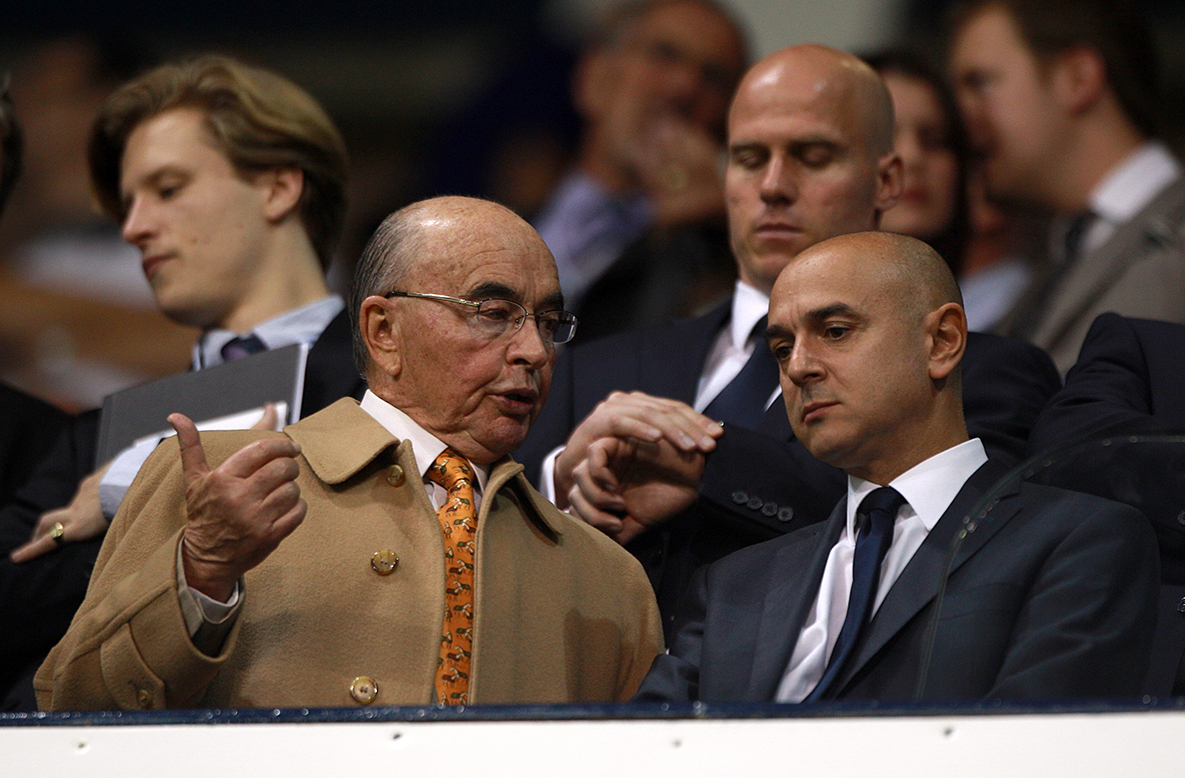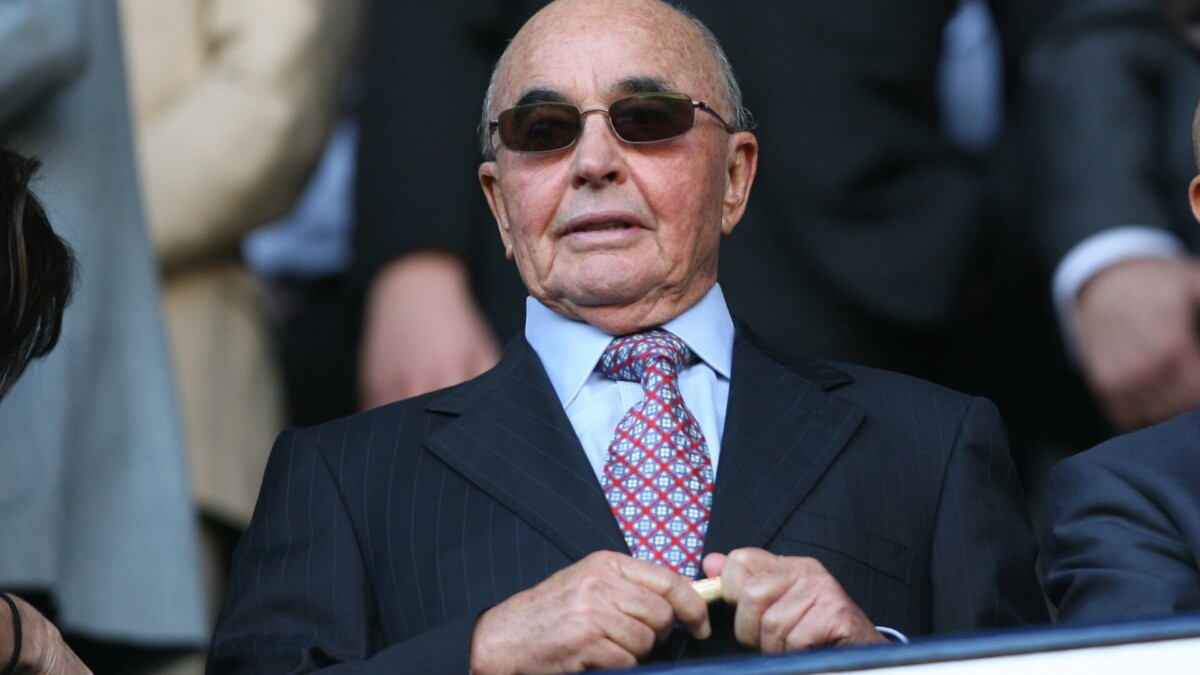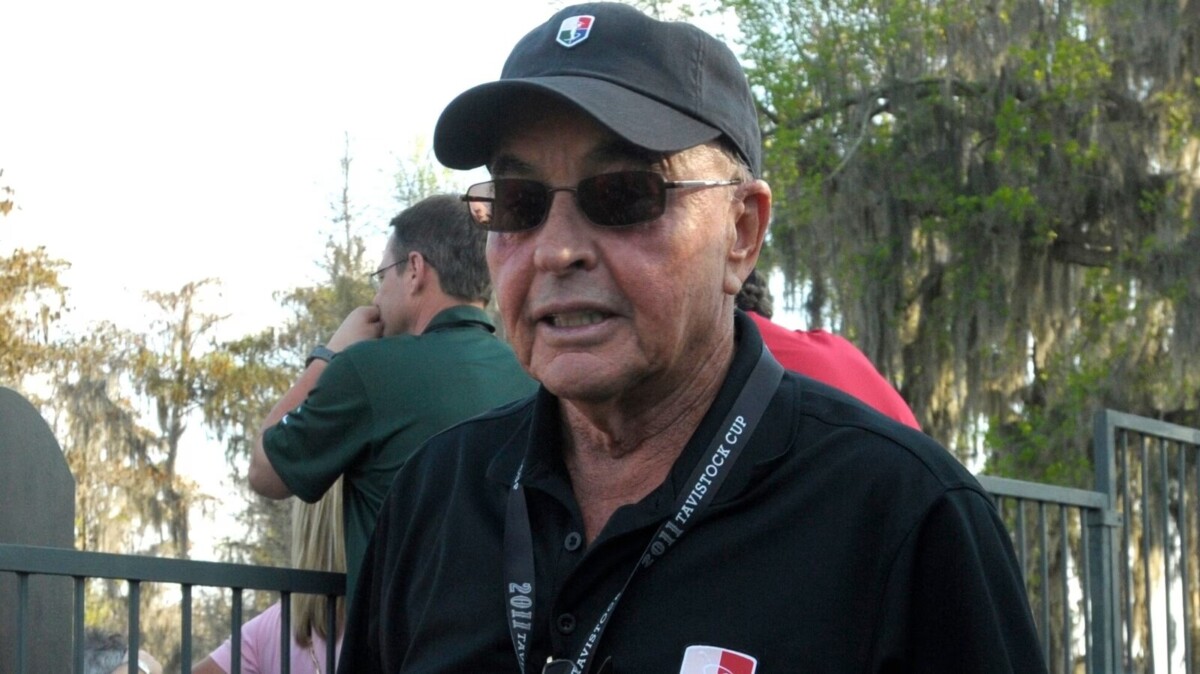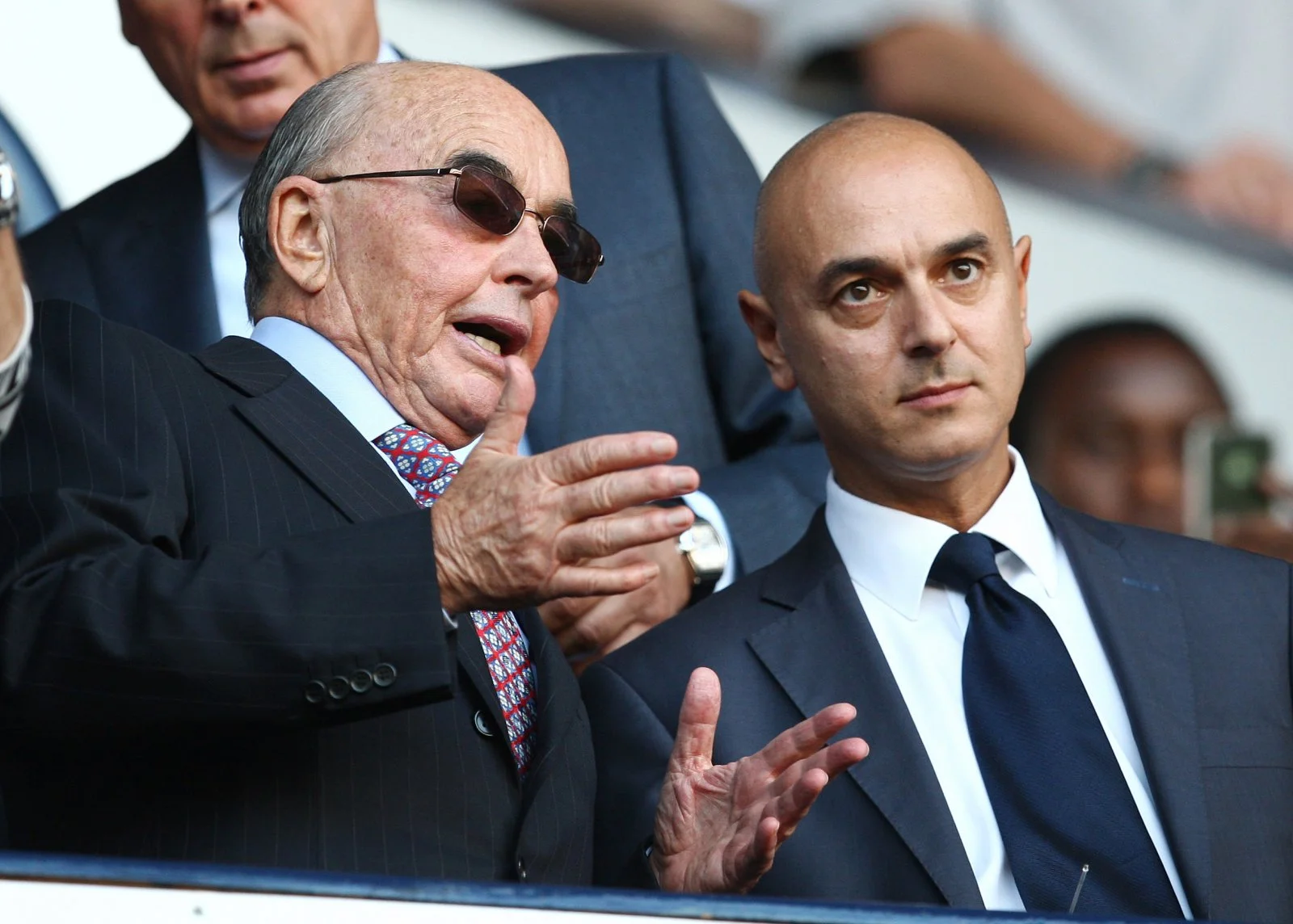Introduction
Insider trading claims have recently come to light in the judicial proceedings involving Joseph Lewis, a well-known British financier and largest shareholder in a biotechnology investment firm. Federal prosecutors in the Southern District of New York and the Securities and Exchange Commission (SEC) have filed criminal charges against Lewis, alleging that he unlawfully shared nonpublic information with acquaintances for financial benefit. Joe Lewis Trading explores the case’s complexities, providing background on the wealthy investor’s possible ramifications, legal accusations, and claimed actions.
Background
Lewis Is The Principal Owner And Investor From The United Kingdom In A Biotech Investment Fund
The well-known British financier Joseph Lewis mainly owns a biotechnology investment fund. Lewis, an influential person in the financial sector, manages and oversees investments across multiple industries, specializing in biotechnology. Lewis has strong decision-making authority over investment strategies, portfolio management, and possible financial profits or losses as a majority owner, which means he has a dominant interest in the fund. Under his position, he must operate in the best interest of the fund’s stakeholders, granting him access to the financial details of the fund.
Possession Of Significant Nonpublic Information Concerning The Companies Held By The Fund
Since Lewis is the main shareholder in a biotech investment fund, he has special access to confidential information about the companies that are part of the fund’s holdings. This data includes specifics regarding the fund’s investing businesses’ financial status, future objectives, and possible changes. Because of its high worth, officials keep this nonpublic information secret until they officially release it.
Disclosures involving Lewis’s position could affect the value of the firms in the fund’s portfolio. Factors that can affect these companies’ stock values include impending financial results, the results of clinical trials, mergers and acquisitions, and other strategic actions.
Lewis’s Bahamian Home
Aside from his involvement in the banking sector, Joseph Lewis primarily resides in The Bahamas. Lewis’s choice to reside in The Bahamas may affect the regulatory system governing his financial operations, potentially impacting jurisdictional issues. People looking for tax havens and financial anonymity often go to the Bahamas for its offshore financial services industry and stellar tax haven reputation. Regulatory authorities like the SEC may have obstacles when investigating and pursuing legal measures due to Lewis’s residency being located abroad. The regulatory environment around the suspected insider trading operations may get more complex as the case progresses due to potential cross-border legal difficulties and collaboration with foreign authorities.
Reported Insider Trading Practices

Duration: Around July With The End Of October 2019
Around July 2019 until October 2019, authorities accuse Joseph Lewis and his accomplices of engaging in insider trading. During this period, Lewis unlawfully disclosed substantial nonpublic information to certain persons, and those persons subsequently utilized this knowledge to initiate stock market transactions.
Lewis Sharing Confidential Information With Colleagues
Joseph Lewis is accused of allegedly informing his then-girlfriend Carolyn W. Carter about critical nonpublic information. Lewis supposedly shared privileged material connected to the portfolio businesses of the biotechnology investment fund with Carter. Lewis allegedly violated the duty of confidentiality by doing so. Furthermore, on one occasion, Lewis is said to have divulged important nonpublic information to his two private pilots, Patrick J. O’Connor and Bryan L. Waugh. Since the pilots not only exploited this information to make stock market trades but were also associates, it is believed that this act violated Lewis’s duty of secrecy.
True Cases Of Insider Trading
Details Regarding A Company’s Capital-Raising Deal In July 2019
A biotechnology fund had a sizable stake in a firm planning to raise funds through a particular transaction. It is known to boost the share price, and Lewis found out about it in July 2019. The day Lewis supposedly learned this, he allegedly met with Carolyn W. Carter in a high-end hotel room. He had reportedly bought common stock in the company for over $700,000 in less than three hours after the meeting. Carter made around $172,000 from the stock acquisition due to the company’s share price increasing by over 34.4% following the disclosure of the transaction.
September 2019 – Another Portfolio Company Achieves Positive Clinical Trial Results
Lewis acquired a different portfolio company’s substantial nonpublic information in September 2019. The corporation was planning to present the trial’s positive findings at a conference the month after this one. The SEC alleges that Carter, followed by O’Connor and Waugh, used this information to buy common stock in the company. Claiming to have gotten the data instead of a formal retirement plan. O’Connor and Waugh used the $500,000 loans from Lewis to make the transactions. With a 16.7 percent gain in the company’s share price following the public disclosure of the good clinical trial findings in October 2019. Carter, O’Connor, and Waugh could pocket about $373,000 in total earnings.
The Participation Of Lewis’s Associates
Carolyn W. Carter
On two separate occasions, Lewis divulged confidential information to Carter, his girlfriend at the time. According to reports, Carter met with Lewis in a high-end hotel room in July 2019 and bought almost $700,000 worth of common shares in a company within three hours. The forthcoming capital-raising transaction, which caused the stock price to soar, was the subject of the information given to her. Even after the news of the stock purchase became public, it is alleged that Carter made over $172,000 from it.
Patrick J. O’Connor
At least once, Lewis allegedly disclosed material nonpublic information to O’Connor, a private pilot who worked for Lewis. Lewis allegedly told O’Connor about the excellent clinical trial results of a portfolio business in the incident that occurred in September 2019. O’Connor subsequently made deals with the common shares of the business. According to the SEC complaint, Lewis lent O’Connor $500,000 to help with the stock trades and gave him insider knowledge instead of a proper retirement plan. Following the public disclosure of the positive results from the clinical trial, O’Connor allegedly benefited from the stock transactions.
Bryan L. Waugh
Belief holds that the other private pilot working for Lewis, Waugh, was also involved in the insider trading operation, akin to O’Connor. According to the SEC’s claims, Lewis informed Waugh about positive clinical trial results for a portfolio company, constituting substantial nonpublic knowledge. Waugh allegedly received this knowledge as a present from Lewis. He also financed him half a million dollars to trade common shares in the firm. Waugh allegedly played a central role in the stock trades following the public announcement of the favorable clinical trial results.
The Sec Complaint And Legal Actions
The Sec’s Complaint Submitted To The Southern District Of New York Federal District Court
Joseph Lewis, Carolyn W. Carter, Patrick J. O’Connor, and Bryan L. Waugh are all named in a lawsuit that the SEC submitted to the U.S. District Court for the Southern District of New York, detailing their alleged insider trading activity. In its formal complaint, the SEC lays out the grounds for its legal action against the defendants, including in great detail the alleged breaches of securities laws.
Allegations Against Waugh, O’connor, Carter, And Lewis
The SEC indicted Joseph Lewis for knowingly providing substantial nonpublic information to his partners. Carolyn W. Carter, Patrick J. O’Connor, and Bryan L. Waugh were indicted for trading on this information and making a profit. Among the specific charges against this individual are violations of the antifraud sections of the federal securities laws. These statutes forbid using manipulative or deceptive methods when buying or selling securities.
Federal Securities Laws’ Antifraud Provisions Violated
Since insider trading entails using substantial nonpublic knowledge to obtain an unfair advantage in the securities market. The accusations will likely be founded on violations of antifraud procedures. Statutes that contain antifraud provisions aim to safeguard investors against misleading tactics and preserve the integrity of the securities markets. One such statute is the Securities Exchange Act of 1934, specifically Section 10(b).
The Sec’s Request For Civil Penalties, Disgorgement Of Gains, And Permanent Injunctive Relief
If the SEC suspects a breach of securities laws, it will often pursue various remedies. The SEC is probably going for a long-term injunction to stop the accused from breaking securities laws again. Authorities could pursue civil penalties as a punishment for the claimed misconduct, including imposing monetary fines. To ensure the recovery of ill-gotten gains by victims of insider trading, the SEC can actively pursue disgorgement.
Concurrent Criminal Proceedings

Authorities in the Southern District of New York have issued criminal charges against Joseph Lewis, Patrick J. O’Connor, and Bryan L. Waugh, coinciding with the SEC’s civil case. Allegations of fraudulent actions are common in criminal prosecutions, which carry serious legal ramifications, including the possibility of incarceration. The insider trading conspiracy allegedly involved Bryan L. Waugh, Patrick J. O’Connor, and Joseph Lewis, all facing criminal charges.
The fact that Joseph Lewis turned himself into American authorities. In Manhattan suggests that he is prepared to assist with the legal processes. Lewis must appear before the court to face formal charges and go through the legal process. According to defense testimony from attorneys like David Zornow, Lewis willingly came to the US to face the allegations, suggesting a proactive approach in the legal defense. One possible legal defense is to dispute the evidence’s validity or the securities laws’ interpretation. Another is to claim innocence.
SEC Investigation And Financial Details
A Total Of Over $545,000 In Profits
Joseph Lewis and four associates—Carolyn W. Carter, Patrick J. O’Connor, and Bryan L. Waugh—are accused by the Securities and Exchange Commission (SEC) of engaging in insider trading to more than $545,000 in cumulative profits. This financial detail highlights the amount of the claimed illegal gains resulting from the exploitation of substantial nonpublic information.
Particulars Of Individual Deals And Profits
Each person implicated in the alleged insider trading conspiracy will likely have their particular transactions and gains documented in the SEC’s complaint. These disclosures could reveal information about the firms that traded shares, the timing of those stock transactions in relation to the receipt of material nonpublic information, and the amount of money generated from those trades. Particularly, the SEC might present proof that associates of Lewis—Carter, O’Connor, and Waugh—allegedly utilized the confidential information to execute trades and derive profits from the anticipated market fluctuations.
The Concurrent Investigation By The Sec
Alleged insider trading by Joseph Lewis and others is reportedly under investigation by the SEC. According to ongoing investigations, the SEC may be aggressively gathering more information, reviewing financial records, and questioning pertinent parties to construct a thorough case. The ongoing actions of the SEC demonstrate its determination to investigate the allegations to the fullest extent possible and to hold any other perpetrators of wrongdoing accountable.
The SEC’s Gratitude For Other Authorities’ Help
As a sign of cooperation in the investigation, the SEC has expressed gratitude to other agencies for their help. Federal Bureau of Investigations (FBI), Financial Industry Regulatory Authority (FINRA), and United States Attorney’s Office for the Southern District of New York are the other potential authorities cited. By working together, regulatory organizations and law enforcement can conduct more thorough investigations. It could lead to more severe legal consequences for individuals responsible for the alleged misconduct.
Tottenham Hotspur’s Reaction

Tottenham’s Public Statement On The Legal Issue
As part of their formal response to the legal dispute involving Joseph Lewis, the English football club Tottenham Hotspur released a statement. Lewis has a considerable stake in the team as the majority owner of a biotechnology investment fund. Tottenham is expected to acknowledge the recent legal developments. And pledge to comply with any inquiries or probes that may come up in their statement.
The Problem Is Unrelated To The Club, To Be Clear
Tottenham is believed to stress in their statement that the legal matter involving Joseph . Lewis has no connection to the club’s business or activities. This explanation is vital in separating the football team. And its image from the purported wrongdoing of a member of the club’s ownership. While individual owners’ legal troubles may not represent the club’s principles or activities. Tottenham Hotspur may stress its dedication to maintaining ethical standards and legal compliance within the framework of the football club.
Possible Consequences
Lewis Is Facing 16 Indictments For Securities Fraud And 3 For Conspiracy
The charges against Joseph Lewis are grave: three conspiracy counts and sixteen securities fraud. The acquisition or sale of securities may be the subject of allegations of fraudulent acts, while accusations of conspiracy imply a possible collaboration or agreement to participate in illegal operations.
The Longest Possible Sentences And What Determines Them
Some elements can affect the maximum sentences that might be imposed for securities fraud and conspiracy accusations. In addition to fines and jail time, accusations of securities fraud may result in substantial monetary penalties. Sentencing guidelines and applicable statutes will determine the maximum penalties for each count.
The seriousness of the charges, the extent of the monetary damage, the defendant’s prior record of comparable wrongdoing, and the defendant’s cooperation throughout the legal process are all factors that could be considered while sentencing. More serious punishments may be imposed in extreme cases, such as when a position of trust is used for personal benefit or when complex techniques are employed.
The Wealth Of Lewis And His Influence Over Board Director Positions
A person who could have an impact on the court proceedings is Joseph—Lewis, whose net worth is $6.1 billion, as published in Forbes magazine. The amount of reasonable fines or restitution might be decided by considering the defendant’s financial situation. The court may consider the defendant’s financial means. Some companies’ board director seats are within Lewis’ control, which could be an important factor to consider. The seriousness of the allegations and possible punishments may be enhanced if the purported insider trading actions included the abuse of confidential information acquired through these positions.
Conclusion
Prosecuting Joseph Lewis, in this case, brings home the serious moral and legal ramifications of insider trading. Regulatory agencies and the impacted businesses have responded to Lewis’ alleged violation of confidentially, which has resulted in legal consequences for him as a powerful person in the banking sector. It is crucial to remain vigilant in protecting the integrity of financial markets since the seriousness of such acts is highlighted by the potential consequences he may face. The overall effect of the case on public faith in the integrity of financial institutions is considered in the final section.
Frequently Asked Questions
1. For The Latest Court Proceedings, What Exactly Is Joseph Lewis Accused Of?
Joseph Lewis is facing accusations of unlawfully informing colleagues, including his ex-girlfriend and private pilots, about crucial nonpublic information so that they might make trades and help him make money.
2. Are There Any Particular Accusations Against Joe Lewis That Have Been Brought Out By The Sec And The Us Attorney’s Office?
The SEC has levied many counts against Lewis, including securities fraud and conspiracy, all stemming from the alleged unlawful disclosure of substantial nonpublic information.
3. How Much Money Did Lewis And His Associates Make Through Insider Trading?
It is alleged by the SEC that Lewis and his colleagues made over $545,000 in total from their insider trading deals.
4. Given The Possible Sanctions That Lewis Could Face, How Significant Is His Net Worth?
The fines or reparations that could be levied as penalties if Lewis is found guilty could be based on his large net worth, reportedly 6 billion dollars.
5. To What Extent Does Lewis’s Influence Over The Board Director Seats Affect The Ongoing Legal Proceedings?
The gravity of the allegations and any sanctions might be amplified if it is determined that Lewis abused the confidential knowledge he gained from his position as board director.


